UPSC Daily Current Affairs- January 14, 2022 | Current Affairs: Daily, Weekly & Monthly - CLAT PDF Download
GS-I
Criminalizing Marital Rape in India
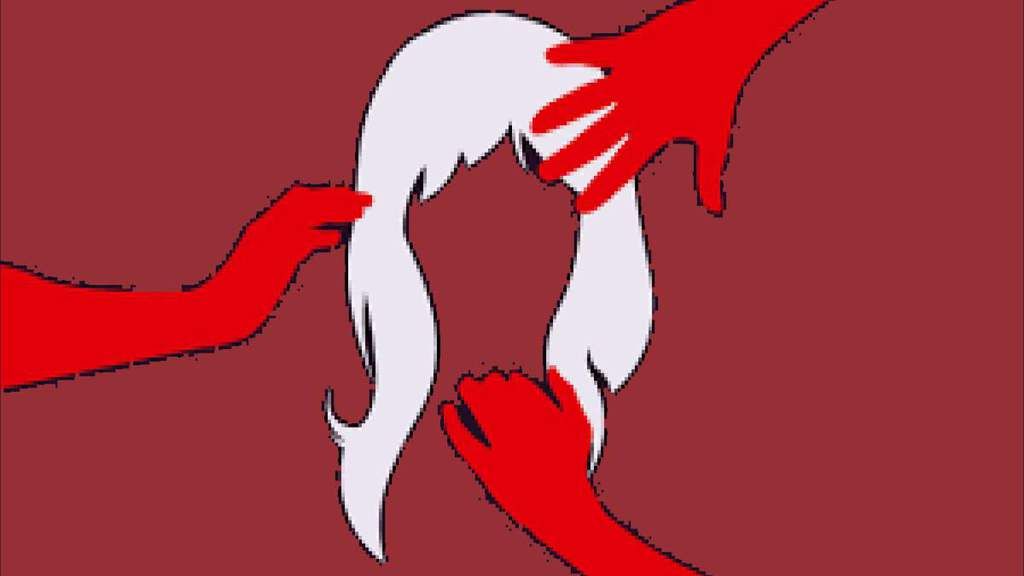
Context
- The Delhi High Court has told the Centre that it will continue hearing the petitions challenging the legal exception to marital rape and not wait for the government’s ongoing process of initiating reform in the criminal laws.
About Marital Rape
- Marital rape is the act of sexual intercourse with one’s spouse without her consent.
- It is no different manifestation of domestic violence and sexual abuse.
- It is often a chronic form of violence for the victim which takes place within abusive relations.
Status in India
- Historically considered as right of the spouses, this is now widely classified as rape by many societies around the world.
- In India, marital rape is not a criminal offense (as protected under IPC section 375).
- India is one of fifty countries that have not yet outlawed marital rape.
Reasons for disapproval of this concept
- The reluctance to define non-consensual sex between married couples as a crime and to prosecute has been attributed to:
- Traditional views of marriage
- Interpretations of religious doctrines
- Ideas about male and female sexuality
- Cultural expectations of subordination of a wife to her husband
- It is widely held that a husband cannot be guilty of any sexual act committed by himself upon his lawful wife their on account of their mutual matrimonial consent.
Violation of fundamental rights
- Marital rape is considered as the violation of FR guaranteed under Article 14 of the Indian constitution which guarantees the equal protection of laws to all persons.
- By depriving married women of an effective penal remedy against forced sexual intercourse, it violates their right to privacy and bodily integrity, aspects of the right to life and personal liberty under Article 21.
Problems in prosecuting marital rape
- Lack of awareness: A lack of public awareness, as well as reluctance or outright refusal of authorities to prosecute is common globally.
- Gender norms: Additionally, gender norms that place wives in subservient positions to their husbands, make it more difficult for women to recognize such rape.
- Acceptability of the concept: Another problem results from prevailing social norms that exist.
Present regulations in India
- Indian Penal Code criminalizes rape in most cases, although marital rape is not illegal when the woman is over the age of 18.
- However, until 2017, men married to those between 15 and 18 could not be convicted of rape.
- Marital rape of an adult wife, who is unofficially or officially separated, is a criminal offence punishable by 2 to 7 year in prison; it is not dealt by normal rape laws which stipulate the possibility of a death sentence.
- According to the Protection of Women From Domestic Violence Act (2005), other married women subject to such crime by their husband may demand for financial compensation.
- They also have the right to continue to live in their marital household if they wish, or may approach shelter or aid homes.
However, marital rape is still not a criminal offence in this case and is only a misdemeanour.
Arguments against criminalization
- Subjective: It is very subjective and intricate to determine whether consent was acquired or not.
- Prone to Misuse: If marital rape is criminalized without adequate safeguards it could be misused like the current dowry law by the dissatisfied wives to harass and torture their Husbands.
- Burden on Judiciary: It will increase the burden of judiciary which otherwise may serve other more important causes.
Kathak
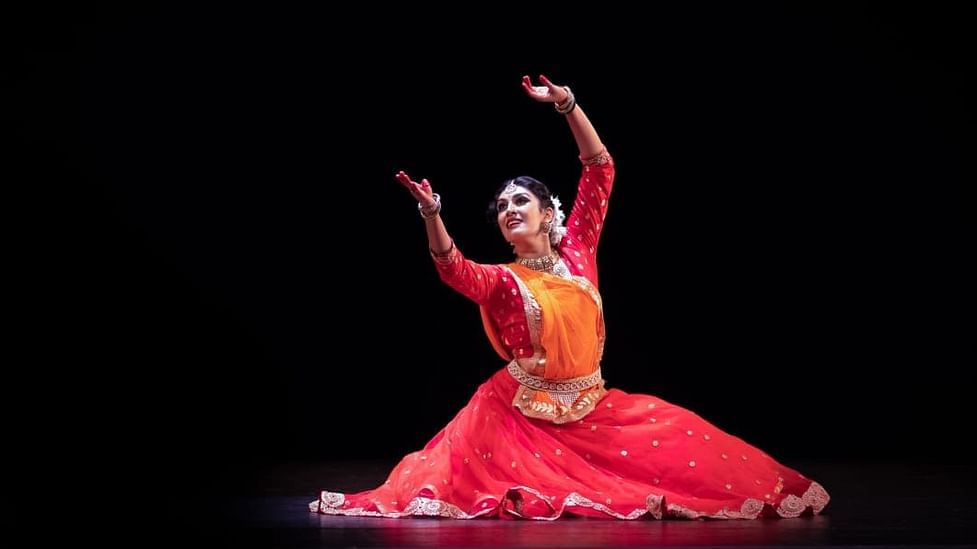
Context
- Recently, the famous Kathak dancer Pandit Munna Shukla died.
- His most noted works include the dance-drama Shan-e-Mughal, Inder Sabha, Ameer Khusro, Anga Mukti, Anvesha, Bahar, Tratak, Kraunch Badh, Dhuni, among others.
- His contribution to the world of dance was awarded the Sangeet Natak Akademi Award (2006), Sahitya Kala Parishad Award (2003) and the Saraswathi Samman (2011).
About Kathak
- The word Kathak has been derived from the word Katha which means a story. It is primarily performed in Northern India.
- It was primarily a temple or village performance wherein the dancers narrated stories from ancient scriptures. It is one of the classical dances of India.
Evolution of Kathak
- Kathak began evolving into a distinct mode of dance in the fifteenth and sixteenth centuries with the spread of the Bhakti movement.
- The legends of Radha-Krishna were enacted in folk plays called rasa lila, which combined folk dance with the basic gestures of the kathak story-tellers.
- Under the Mughal emperors and their nobles, Kathak was performed in the court, where it acquired its present features and developed into a form of dance with a distinctive style.
- Under the patronage of Wajid Ali Shah, the last Nawab of Awadh, it grew into a major art form.
Dance Style
- Usually a solo performance, the dancer often pauses to recite verses followed by their execution through movement.
- The focus is more on footwork; the movements are skillfully controlled and performed straight-legged by dancers wearing ankle-bells.
- The tatkaar is the fundamental footwork in kathak.
- Kathak is the only form of classical dance wedded to Hindustani or North Indian music.
- Some prominent dancers include Birju Maharaj, Sitara Devi.
Other Classical Dances in India
- Bharatanatyam from Tamil Nadu
- Kathakali, from Kerala.
- Kuchipudi, from Andhra Pradesh.
- Odissi, from Odisha.
- Sattriya, from Assam.
- Manipuri, from Manipur.
- Mohiniyattam, from Kerala.
GS-II
India extends $900 mn aid to Sri Lanka
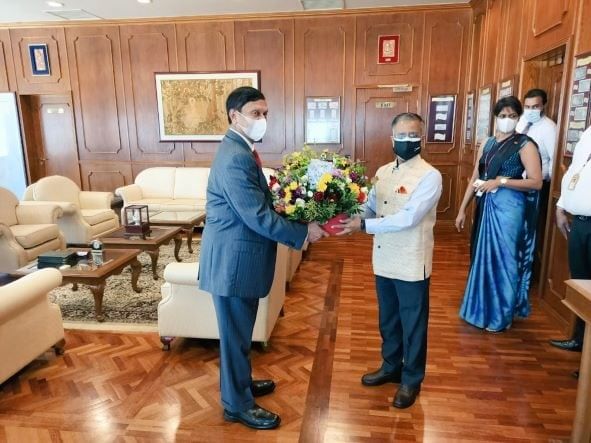
Context
- India has confirmed a $400 million currency swap with Sri Lanka while deferring another $500 million due for settlement to the Asian Clearing Union (ACU).
- Sri Lanka is facing a severe dollar crunch that economists say might lead to a default on external debt and create a food shortage in the imports-reliant island nation.
In this regard, the Reserve Bank of India has extended currency swap facilities of $900 million to Sri Lanka.
What are Currency Swaps?
- A currency swap, also known as a cross-currency swap, is an off-balance sheet transaction in which two parties exchange principal and interest in different currencies.
- Currency swaps are used to obtain foreign currency loans at a better interest rate than could be got by borrowing directly in a foreign market.
How does it work?
- In a swap arrangement, RBI would provide dollars to a Lankan central bank, which, at the same time, provides the equivalent funds in its currency to the RBI, based on the market exchange rate at the time of the transaction.
- The parties agree to swap back these quantities of their two currencies at a specified date in the future, which could be the next day or even three months later, using the same exchange rate as in the first transaction.
- These swap operations carry no exchange rate or other market risks, as transaction terms are set in advance.
Why does one need dollars?
- FPIs investors look for safer investments but the current global uncertainty over COVID outbreak has led to a shortfall everywhere in the global markets.
- This has pulled down foreign exchange reserves of many small and developing countries.
- This means that the government and the RBI cannot lower their guard on the management of the economy and the external account.
Benefits of currency swap
- The absence of an exchange rate risk is the major benefit of such a facility.
- This facility provides the flexibility to use these reserves at any time in order to maintain an appropriate level of balance of payments or short-term liquidity.
- Swaps agreements between governments also have supplementary objectives like the promotion of bilateral trade, maintaining the value of foreign exchange reserves with the central bank and ensuring financial stability (protecting the health of the banking system).
Fisheries Startup Grand Challenge
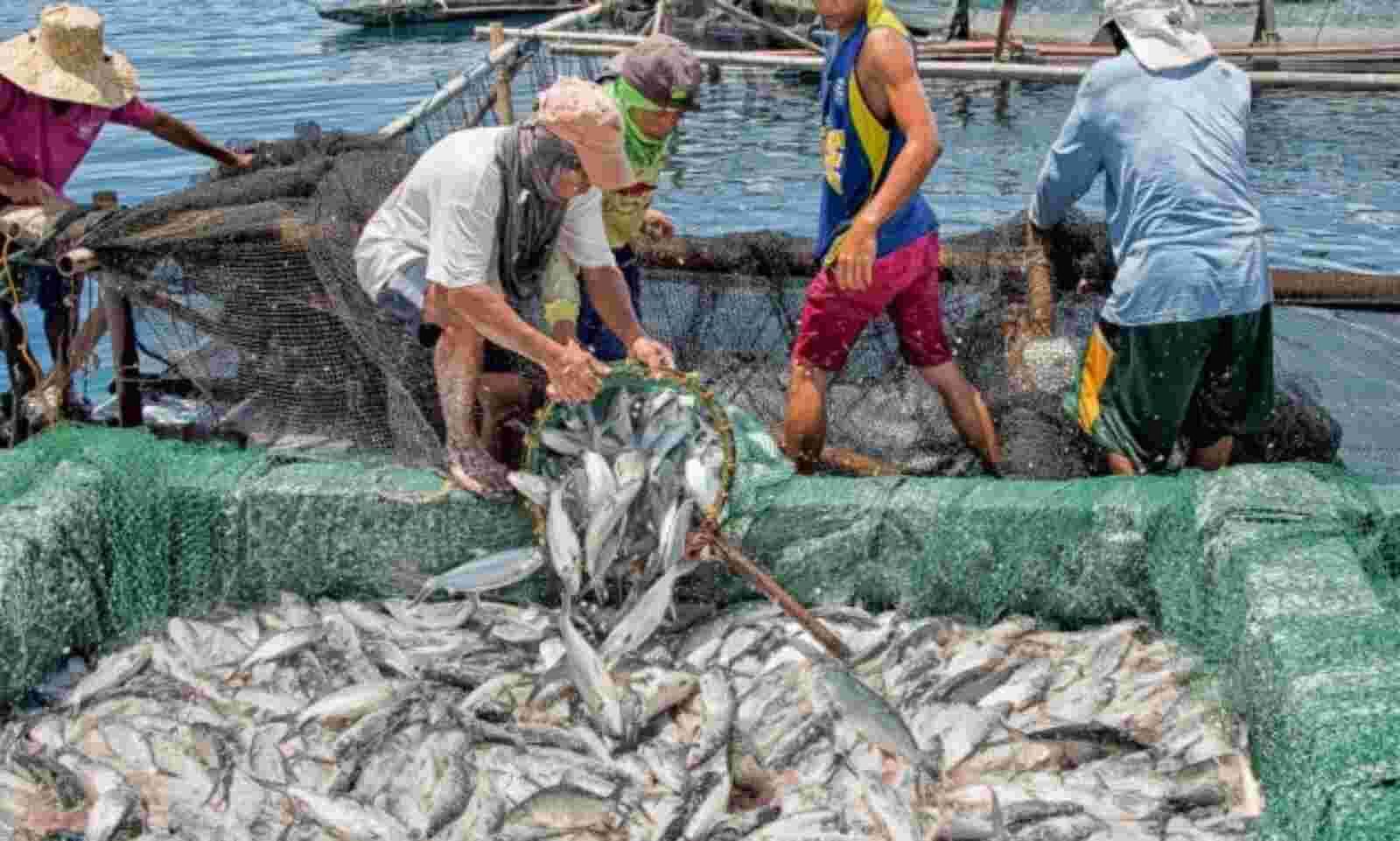
Context
- Recently, the Department of Fisheries, Ministry of Fisheries, Animal Husbandry & Dairying In association with Startup India, the Ministry of Commerce and Industry inaugurated the Fisheries Startup Grand Challenge.
About Fisheries Startup Grand Challenge
- The challenge has been launched with an objective to provide a platform to start-ups within the country to showcase their innovative solutions within the Fisheries and Aquaculture sector.
- The solutions should be devised for resolving issues across the fisheries value chain for increasing aquaculture productivity from the current national average of 3 tons to 5 tons per hectare, doubling exports earnings and reducing post-harvest losses from 25% to 10%.
- The challenge is expected to foster start-up culture within the sector and to establish a strong foundation of the entrepreneurial model, the Department of Fisheries has earmarked funds to the tune of Rs. 3.44 Crore for the challenge.
Related Initiatives
- Establishment of Fisheries and Aquaculture Infrastructure Development Fund (FIDF) during 2018-19.
- Pradhan Mantri Matsya Sampada Yojana: The programme aims to achieve 22 million tonnes of fish production by 2024-25. Also, it is expected to create employment opportunities for 55 lakh people.
- Blue Revolution: Focuses on creating an enabling environment for integrated and holistic development and management of fisheries for the socio-economic development of the fishers and fish farmers.
- Extension of Kisan Credit Card (KCC) facilities to fishers and fish farmers to help them in meeting their working capital needs.
- Marine Products Export Development Authority: MPEDA is a nodal coordinating, state-owned agency engaged in fishery production and allied activities.
- Marine Fisheries Bill: The Bill proposes to only grant licenses to vessels registered under the Merchant Shipping Act, 1958, to fish in the Exclusive Economic Zone (EEZ).
- Seaweed Park: Multipurpose seaweed park in Tamil Nadu would be the center of production for quality seaweed-based products, developed on a hub and spoke model.
How to deal with hate speech

Context
- On January 12, 2022, the Supreme Court of India agreed to hear petitions asking for legal action to be taken against the organisers of, and speakers at, the “Hardwar Dharma Sansad”.
What constitutes hate speech
- Hate speech is speech that targets people based on their identity, and calls for violence or discrimination against people because of their identity.
- There is an absence of any legal or social consensus around what constitutes “hate speech.”
- As societies around the world have long understood, the harm in hate speech is not restricted to direct and proximate calls to violence.
- Inciting discrimination is part of hate speech: Hate speech works in more insidious ways, creating a climate that strengthens existing prejudices and entrenches already-existing discrimination.
- This is why – with the exception of the United States of America – most societies define hate speech in terms of both inciting violence, but also, inciting discrimination.
Challenges in dealing with hate speech
- Legal challenge: Our laws – as they stand – are unequipped to deal with the challenges of hate speech.
- The laws commonly invoked in such cases are section 295A of the Indian Penal Code (blasphemy) and section 153A of the Indian Penal Code (creating enmity between classes of people).
- Hate speech will not always be self-evident: Hate speech, by its very nature, will not always trumpet itself to be hate speech.
- Rather, it will often assume plausible deniability – as has been seen in the Hardwar case, where statements, worded with the right degree of ambiguity, are now being defended as calls to self-defence rather than calls to violence.
- Any comprehensive understanding of hate speech is a matter of judgment, and must take into account its ambiguous and slippery nature.
- Lack of social consensus against hate speech: No matter how precise and how definite we try to make our concept of hate speech, it will inevitably reflect individual judgment.
- If, therefore, social and legal norms against hate speech are to be implemented without descending into pure subjectivity, what is needed – first – is a social consensus about what kind of speech is beyond the pale.
- In Europe, for example, holocaust denial is an offence – and is enforced with a degree of success – precisely because there is a pre-existing social consensus about the moral abhorrence of the holocaust.
Conclusion
- Achieving this social consensus is an immense task, and will require both consistent legal implementation over time, but also daily conversations that we, as a society need to have among ourselves.
Swachh Vidyalaya Puraskar 2021 – 2022
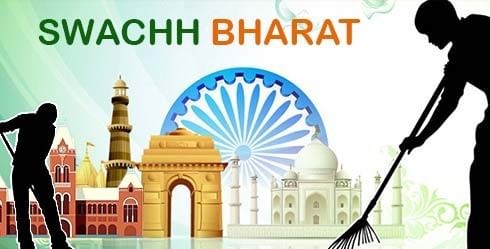
Context
- Recently, the Minister of State for Education virtually launched Swachh Vidyalaya Puraskar (SVP) 2021 – 2022.
About Swachh Vidyalaya Puraskar
- It has been instituted by the Ministry of Education to recognize, inspire and celebrate excellence in sanitation and hygiene practice in schools.
- It was first instituted in 2016-17.
- The purpose of the SVP is to honour schools that have undertaken significant steps towards fulfilling the mandate of the Swachh Vidyalaya Campaign.
- The SVP 2021-22 is open to all categories of schools. i.e. Government, Government aided and Private schools in both rural and urban areas.
- Assessment
- The schools will be assessed through an online portal & mobile app in 6 sub-categories:
- Water, Sanitation, Hand Washing with soap, Operation and Maintenance, Behaviour Change and Capacity Building and the newly added category on COVID-19 Preparedness and Response.
- Schools shall be awarded at the District, State and National level based on an internationally recognized five-star rating system.
IndiaSkills 2021
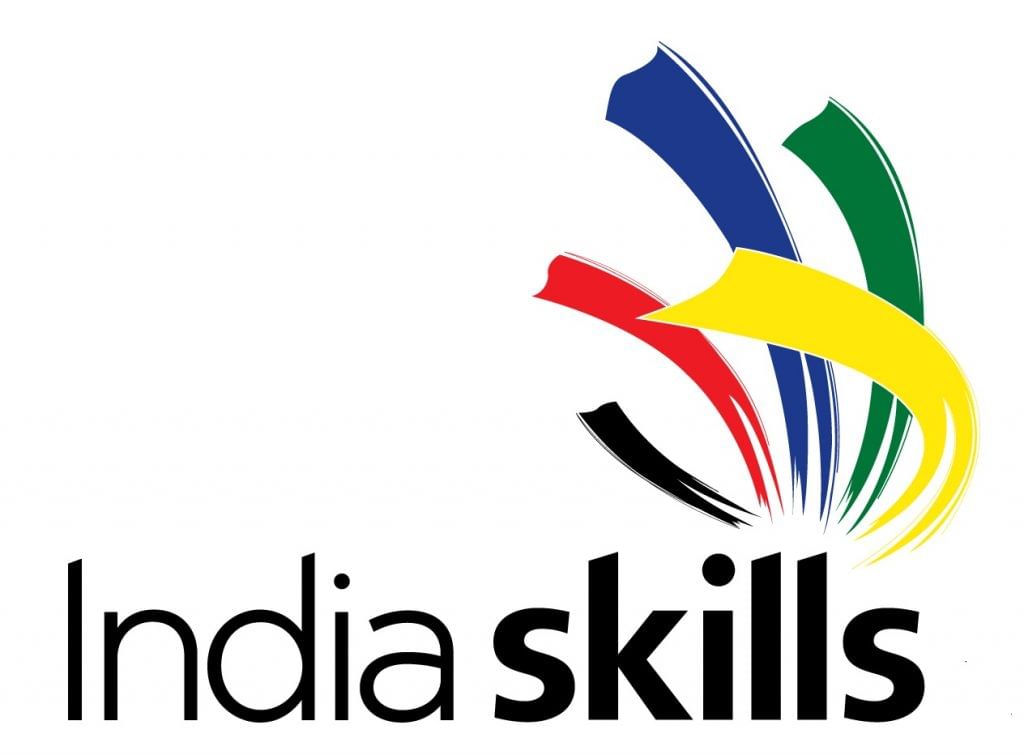
Context
- IndiaSkills 2021 concluded with more than 150 participants being felicitated by the Ministry of Skill Development & Entrepreneurship (MSDE).
About IndiaSkills 2021
- It was organised by National Skill Development Corporation under the guidance of MSDE.
- It is held every two years with the support of state governments and industry.
- The country’s biggest skill competition is designed to demonstrate the highest standards of skilling and offers a platform to young people to showcase their talent at national and international levels.
- It witnessed participation in 54 skills such as concrete construction work, beauty therapy, car painting, health and social care, visual merchandising, graphic design technology, wall & floor tiling, welding, among others.
- NSDC has been leading India’s participation at the WorldSkills International competitions since 2011.
- It brought together over 500 participants from 26 states/ union territories this year.
- It is topped by Odisha.
- The winners of IndiaSkills 2021 will undergo training and get an opportunity to represent the country at the coveted WorldSkills Competition to be held in Shanghai, China in 2022.
GS-III
A new form of socialism powered by cooperative economic enterprises is required
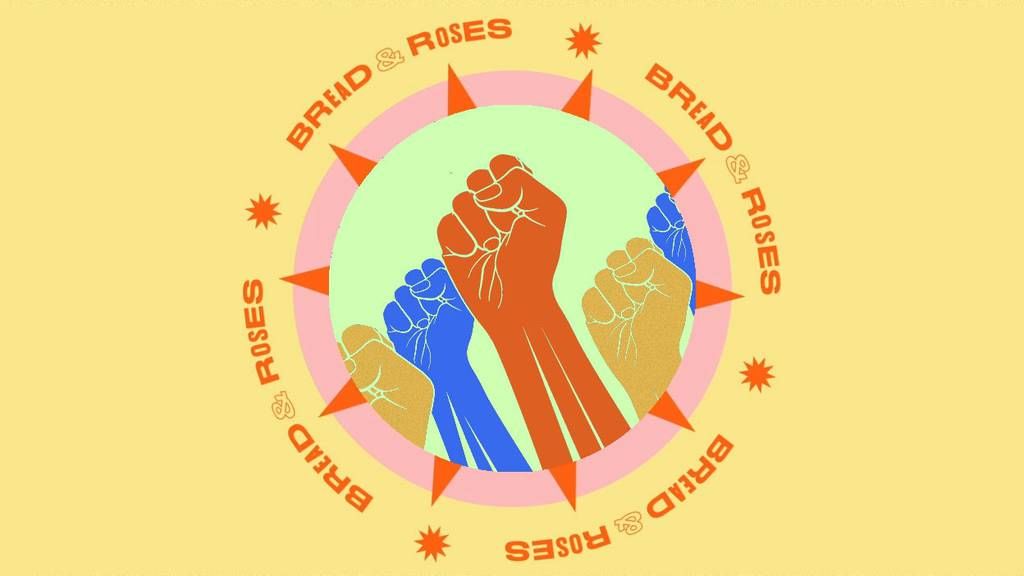
Context
- Inequalities of wealth have increased around the world and India is becoming one of the world’s most unequal countries.
Role of globalisation and privatisation in increasing economic distress
- Economic despair is feeding the rise of authoritarianism, nationalism, and identity politics.
- Role of Globalisation: Opening national borders to free trade became an ideology in economics in the last 30 years.
- Taxes of incomes and wealth at the top were also reduced.
- The ideological justification was that the animal spirits of ‘wealth creators’ must not be dampened.
- With higher taxes until the 1970s, the U.S. and many countries in Europe had built up their public health and education infrastructure and strengthened social security systems.
- The rich are now being taxed much less than they were.
- The pie has grown larger but the richest few have been eating, and hoarding, most of it themselves.
- Role of privatisation: ‘Privatisation’ of everything became another ideological imperative in economics by the turn of the century.
- Selling off public enterprises raises resources for funds-starved governments.
- Another justification is efficiency in delivery of services, setting aside ethical questions of equity.
- When ‘public’ is converted to ‘private’, rich people can buy what they need.
- The gaps between the haves and the have-nots become larger.
How liberal economic policies are creating illiberal societies
- Liberal economists, promoting free markets, free trade, and privatisation, are worried by nationalism and authoritarian governments.
- They rail against “populist” policies of governments that subsidise the poor and adopt industrial strategies for self-reliance and jobs for their citizens.
- Liberals must re-examine their ideas of economics, to understand their own culpability in creating authoritarian and identitarian politics.
The failure of capitalism and communism
- While communism had lifted living standards, and the health and education of masses of poorer people faster than capitalism could, communism’s solution to the “property” question — that there should be no private property — was a failure.
- It deprived people of personal liberties.
- Capitalism’s solution to the property problem — replacing all publicly owned enterprises with privately owned ones (and reducing taxes on wealth and high incomes) has not worked either.
- It has denied many of their basic human needs of health, education and social security, and equal opportunities for their children.
- The private property solution has also harmed the natural environment.
|
1356 docs|794 tests
|
FAQs on UPSC Daily Current Affairs- January 14, 2022 - Current Affairs: Daily, Weekly & Monthly - CLAT
| 1. What is the significance of GS-I in UPSC exams? |  |
| 2. What is GS-II in the UPSC exam? |  |
| 3. What does GS-III cover in the UPSC exam? |  |
| 4. What are some frequently asked questions (FAQs) related to UPSC current affairs? |  |
| 5. How can I prepare for the UPSC exam in accordance with the given article on daily current affairs? |  |





















